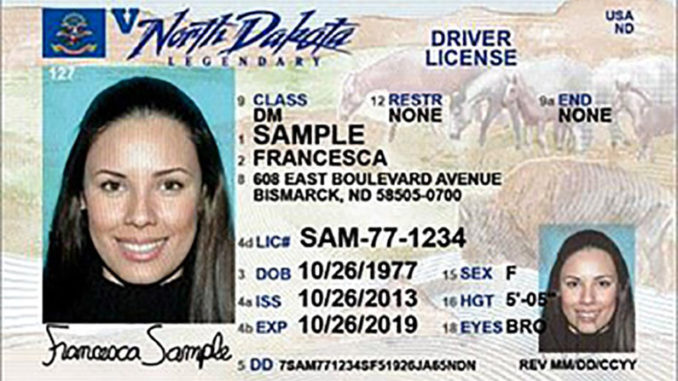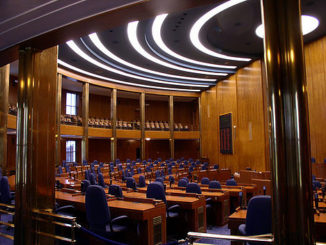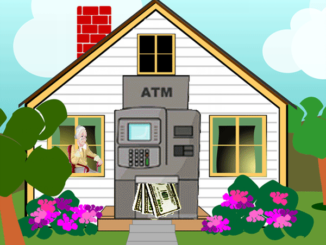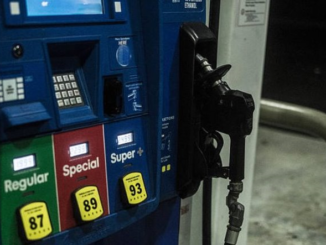
In October of last year, we published an article questioning whether the Republican-dominated legislature would raise the Motor Fuel Tax in 2019. The issue came about as a result of the interim Government Finance Committee being tasked with studying the funding mechanisms of the “Department of Transportation, political subdivisions, and public transportation providers, for road construction, maintenance, other transportation infrastructure needs, and transit services”. As you’ll see in that article, this tax hasn’t seen an increase since 2005.
After a subsequent committee meeting in December, we followed up with another article when the issue of toll bridges and toll roads was mentioned. We again expressed the sentiment that when studying these issues a thorough review of efficiencies should be included.
As things appear now, the appetite for raising the Motor Fuel Tax isn’t very strong in legislative circles. At least that’s the word I got yesterday from one legislator on the heels of our state’s Republican lawmakers rolling out a $280 million infrastructure plan based off the oil tax. But can the same be said for fees relating to driver’s licenses and motor vehicles? As you’ll see in the committee’s last meeting minutes, the North Dakota Department of Transportation’s (NDDOT) Chief Financial Officer, Shannon Sauer, reported that:
“The various fees collected through our Driver’s License operations are projected to generate approximately $4.7 million dollars per year during the next biennium. The total cost of the Driver’s License operations is estimated at $7.15 million dollars per year.”
That’s a projected shortfall of $2.45 million.
Again, according to Mr. Sauer:
“The Motor Vehicle Division costs are projected to be approximately $11 million per year during the next biennium with approximately 1.1 million vehicle registrations occurring annually.
“By statute, the costs to cover the Motor Vehicle Division are taken off the top of the revenue proceeds prior to deposit in the Highway Tax Distribution Fund. Every dollar of cost incurred by Motor Vehicle is one dollar that does not go into the Highway Tax Distribution Fund and is therefore not available to fund transportation.”
At a recent symposium on transportation funding, keynote speaker Jennifer Brickett, who is Director of the American Association of State Highway and Transportation Officials, expressed that there are three options to resolve funding issues in relation to transportation:
- Increase taxes or fees from existing sources.
- Create new sources.
- Divert revenue from other sources.
At the same symposium, Scott Zainhofsky, who is Planning/Asset Management Division Director with the North Dakota Department of Transportation, expressed that:
“The NDDOT is currently in a preservation mode, meaning we are largely trying to preserve the transportation system as it exists today. However, we are losing ground and our system is deteriorating faster than we have resources to preserve it. The department has stretched every dollar as far as it can, as evidenced by a recent Reason Foundation report naming NDDOT as the most efficient DOT in the nation.”
In a nutshell, Mr. Zainhofsky is saying that they’re about as efficient as they can get at this point— and they’re still short.
So, what are the possibilities being discussed in Bismarck to solve these funding issues? There’s a number of them, but it appears that raising fees is the most likely. For example, raising the Class D license from $15 every six years to $41— which would be a break even mark – or increasing vehicle registrations by $10 each. In addition, a value capture and implementing a per mile tax seemed to get attention as well.
In case you’re not familiar with it, value capture is described as follows:
“Transportation infrastructure may increase adjacent land values. Value capture converts a portion of the increased property value as public revenue via some form of taxation such as a property tax.”
With rising property taxes across the state, how excited do you suppose property owners would be at the prospect of the state adding value capture as a source of revenue? I’m guessing a revolt would be in order— and rightfully so.
A per mile tax is fairly self-explanatory, but this comment is found in the committee’s meeting minutes about it:
“The concept of a per-mile tax is being investigated by a very limited number of states. No state has yet implemented a per-mile tax on a statewide basis. Therefore, at this time we have no reliable data from which to project a revenue amount for ND.”
The challenge with a per mile tax is that it “would require an electronic reporting mechanism, annual mileage checks, or self reporting”. Apparently this “may eventually be available in new vehicles”. Even so, would the general traveling public be interested in mileage checks and self reporting? Regardless, it seems we’re a ways from a serious discussion about such a thing.
For now, I’m guessing we’ll see legislation in 2019 that proposes raising fees for driver’s licenses and motor vehicles.
As a side note, if you’re interested in seeing the breakdown for the Highway Tax Distribution Fund, you can click here. You’ll notice the $4.7 million given to the Ethanol Incentive Fund (i.e. ethanol subsidy). That fund alone would nearly be enough to make up for the shortfall in Driver’s License operations. I wrote back in November about Legislative Council admitting these subsidies might be unconstitutional. Then in April, I wrote about the issue again when Rep. Rick Becker requested an Attorney General’s opinion on the matter. So far as I know, the opinion hasn’t been issued yet.
What are your thoughts? Do you see a way to increase efficiency and reduce costs? Is it time to raise fees? Should new revenue sources be implemented? Should diversions from other revenue sources be made to make up for the shortfall? Or a combination of these things?
Sources:
- https://theminutemanblog.com/2017/10/26/will-north-dakota-republicans-raise-the-motor-fuel-tax-in-2019/
- https://www.legis.nd.gov/assembly/65-2017/interim/19-5149-03000-meeting-minutes.pdf
- http://www.grandforksherald.com/news/government-and-politics/4477684-north-dakota-republican-lawmakers-unveil-280-million
- https://www.legis.nd.gov/files/committees/65-2017/19_5149_03000appendixc.pdf
- https://www.dot.nd.gov/divisions/driverslicense/fees.htm
- https://www.dot.nd.gov/divisions/mv/vehicle.htm#credit-fee-schedule
- https://theminutemanblog.com/2017/11/13/legislative-council-says-nds-ethanol-subsidies-might-be-unconstitutional/
- https://theminutemanblog.com/2018/04/20/rep-rick-becker-seeks-ag-opinion-constitutionality-ethanol-subsidies/





